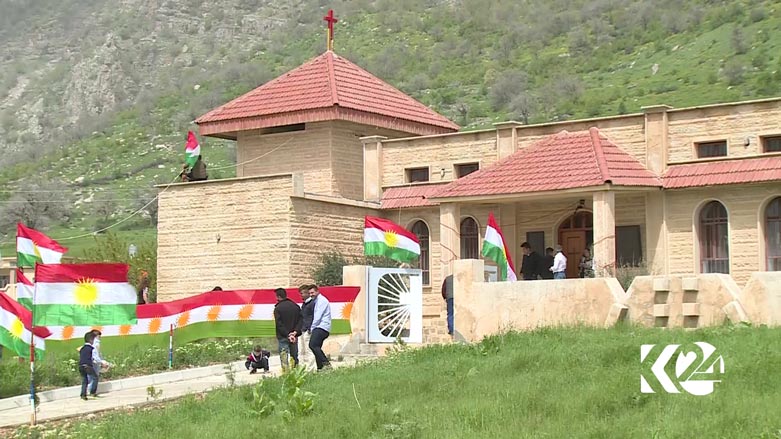KRG responds to ‘baseless allegations’ of discrimination by Assyrian Policy Institute
“The KRG has not and will not tolerate any prejudice or discriminations against any community in the Kurdistan Region.”

ERBIL (Kurdistan 24) – The Kurdistan Regional Government (KRG) has responded to what it called “baseless allegations” by a US-based organization that accused the Kurdish-led government of imposing discriminatory regulations on the residents of Erbil’s Christian-populated Ankawa town.
In a statement released on its website on July 2, the KRG rejected claims made by the US-based Assyrian Policy Institute and said the KRG is proud of the ethnic, cultural, and religious diversity in the Kurdistan Region.
“The KRG fully refutes the allegations published in an article [by the Assyrian Policy Institute] accusing the KRG of imposing discriminatory regulation on Assyrians in Ankawa,” the statement said, describing the allegations as a complete fabrication “based on misinformation.”
Earlier this month, the Assyrian Policy Institute published a report accusing the Kurdish government of imposing taxes exclusively on the Christian population of Ankawa.
“The tax regulation is based on the executive order of the Council of Ministers number 1688, and is applied equally in all provinces in the Kurdistan Region without any discrimination and regardless of the ethnic and religious composition of any districts and towns,” the KRG statement explained.
It also noted the KRG has one income tax policy for the entire Kurdistan Region.
Praising the peaceful coexistence between the components in Kurdistan, the KRG emphasized that all communities under its jurisdiction enjoy the same rights and privileges and have equal responsibilities.
“The KRG has not and will not tolerate any prejudice or discriminations against any community in the Kurdistan Region,” the statement said.
The KRG called on the Assyrian Policy Institute to review the “baseless” information it had published and to avoid posting articles without evidence and facts. It also expressed its readiness to apply “the laws and regulations applicable in the Kurdistan Region.”
Editing by Karzan Sulaivany
